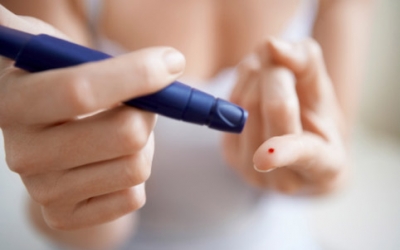- Latest news▼
-
12:16, April 19 Scientists grow human mini-lungs in lab

-
10:23, April 19 JAMA Oncology: Urine test can help rule out high-grade prostate cancer with almost 100% accuracy, study shows

-
18:00, April 18 Daily Mail: Elderly woman in China gets infected with brain-eating amoeba

-
14:19, April 18 Obesity: exercising before breakfast helps you lose weight faster

-
10:42, April 18 The Conversation: childhood trauma can cause pathological hoarding

-
08:37, April 18 Daily Mail: Satiating food reduces cravings for sweets, nutritionist says

-
18:22, April 17 First Armenian-German Conference entitled “Heart Failure Spring School”

-
08:38, April 17 Why do kids usually recover from COVID-19 more easily than adults?

-
14:37, April 16 Daily Mail: intermittent fasting is not suitable for children and women before their periods

-
16:41, April 15 Cell: in carriers of defective BRCA2 gene, sugar consumption increases cancer risk

-
15:04, April 15 305 cases of measles recorded in Armenia so far in 2024

-
14:38, April 15 Food and Environmental Virology: tea contributes to effective coronavirus control

-
12:41, April 15 Daily Mail: vitamin A, B3 and E supplements can be dangerous

-
10:56, April 15 Diabetes Care: evening physical activity is good for the heart

-
08:27, April 15 Women are more susceptible to blood loss and death during bypass surgery than men, researchers say

All materials
Breakthrough for diabetes patients could mean an end to injections

Melbourne researchers are behind a breakthrough discovery that could one day lead to a cure of the auto-immune disease.
Commonly diagnosed during childhood, type 1 diabetes causes immune cells to mistakenly attack insulin-producing islet cells, preventing the body from processing sugar properly.
Patients must closely monitor their blood sugar levels through insulin, but a recent scientific breakthrough hopes to bring an end to insulin injections.
Immunologist Stuart Mannering said the findings by his team at Melbourne’s St Vincent’s Institute of Medical Research would most likely benefit a person with a high risk of developing type 1 diabetes, SBS reported.
“We think that this type of work will eventually lead to delaying the disease and eventually perhaps a cure,” he said.
Researchers have spent the past six years observing the insulin-producing cells from a pancreas of an 18-year-old who died from complications of the disease.
In a world first, they isolated those cells and monitored the interaction with the misbehaving immune cells.
“We're able to put these cells that recognise insulin right at the scene of the crime, right where the autoimmune response is happening,” Dr Mannering said.
“And with that information now we're in a much better position to delay or stop that process.”
Dr Mannering hopes the research will soon lead to clinical trials for the disease, which makes up about 10 per cent of all diabetes cases in Australia.
Follow NEWS.am Medicine on Facebook and Twitter
- Video
- Event calendar
- Archive
- Most read
month
week
day
- WHO: Nigeria pioneers revolutionary meningitis vaccine 1180
- One-third of women experience menstruation-related migraines, most often during premenopause - study 1163
- Daily Mail: vitamin A, B3 and E supplements can be dangerous 1003
- Food and Environmental Virology: tea contributes to effective coronavirus control 1000
- Cell: in carriers of defective BRCA2 gene, sugar consumption increases cancer risk 972
- 305 cases of measles recorded in Armenia so far in 2024 964
- Women are more susceptible to blood loss and death during bypass surgery than men, researchers say 962
- Diabetes Care: evening physical activity is good for the heart 922
- Daily Mail: intermittent fasting is not suitable for children and women before their periods 781
- First Armenian-German Conference entitled “Heart Failure Spring School” 565
- Why do kids usually recover from COVID-19 more easily than adults? 449
- The Conversation: childhood trauma can cause pathological hoarding 447
- Obesity: exercising before breakfast helps you lose weight faster 447
- Daily Mail: Elderly woman in China gets infected with brain-eating amoeba 411
- Daily Mail: Satiating food reduces cravings for sweets, nutritionist says 408
- Find us on Facebook
- Poll





